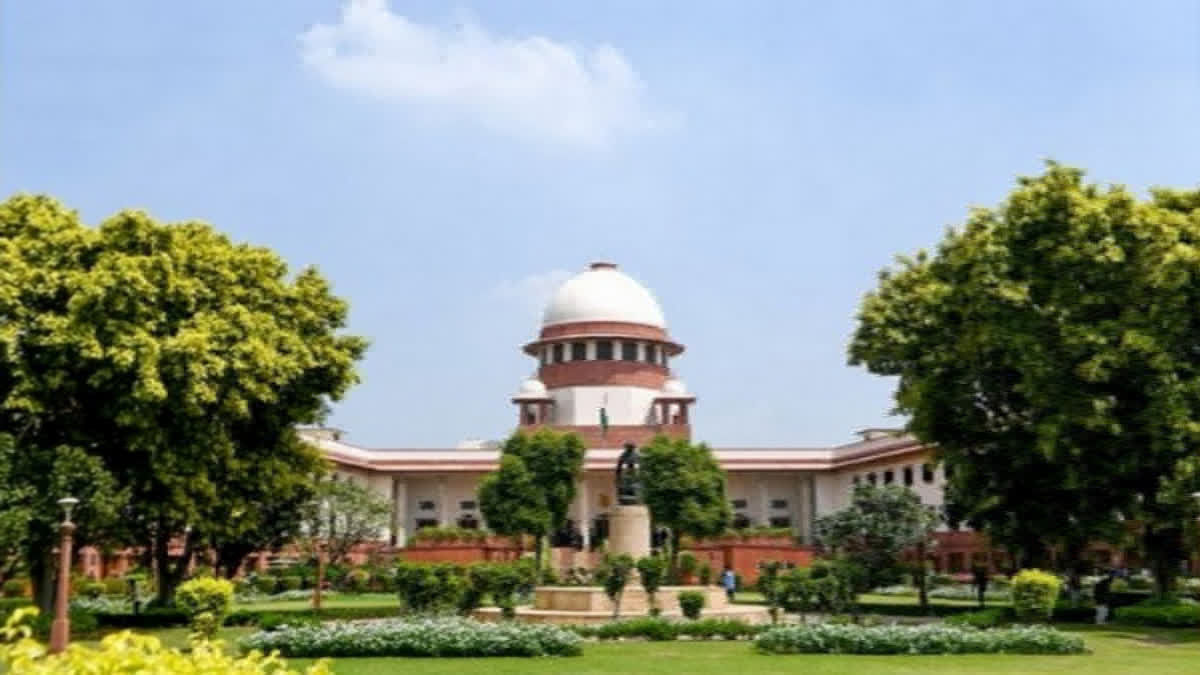New Delhi: The Supreme Court has said there were yawning infirmities, gaps in the chain of circumstantial evidence and disappointing standards of the police investigation while setting free two men on death row and another person sentenced to life imprisonment for kidnap and murder of a 15-year-old boy of their neighbour in July 2013.
The bench stressed that a consistent and dependable code of investigation is devised with a mandatory and detailed procedure for the police to implement and abide by so that the guilty do not walk free on technicalities. A bench comprising justices BR Gavai, JB Pardiwala and Sanjay Kumar said, “Before parting with the case with our verdict, we may note with deep and profound concern the disappointing standards of the police investigation that seem to be the invariable norm."
Justice Kumar, who authored the judgment on behalf of the bench, said it is indeed perplexing that despite the innumerable weak links and loopholes in the prosecution’s case, the trial court as well as the High Court were not only inclined to accept the same at face value but went to the extent of imposing and sustaining capital punishment on Rajesh Yadav and Raja Yadav.
The top court found "shocking lapses, slipshod investigation'' and a "dubious process" adopted by the police in the case based on circumstantial investigation. The bench said no valid and acceptable reasons were put forth as to why this case qualified as the ‘rarest of rare cases’, warranting such drastic punishment.
“Per contra, we find that the yawning infirmities and gaps in the chain of circumstantial evidence in this case warrant acquittal of the appellants by giving them the benefit of the doubt. The degree of proof required to hold them guilty beyond a reasonable doubt, on the strength of circumstantial evidence, is clearly not established," said the bench.
Also read: 'Disclosure of source code can lead to hacking’, says SC; declines plea for audit of EVMs
The court allowed the appeals filed by Om Prakash Yadav, his brother Raja and son Rajesh alias Rakesh against the Madhya Pradesh High Court judgment, which confirmed the trial court's findings and sentence against them. Senior advocate Sidharth Luthra and advocate Supriya Juneja represented the appellants
Citing a 2012 report by the Law Commission of India, the top court said it was observed that the principal causes of the low rate of conviction in our country, inter alia, included an inept, unscientific investigation by the police and lack of proper coordination between the police and prosecution machinery.
The bench said despite the passage of considerable time since these gloomy insights, we are dismayed to say that they remain sadly true even to this day and a young boy in the first flush of youth was cruelly done to death and the wrongdoers necessarily had to be brought to book for the injustice done to him and his family.
“However, the manner in which the police tailored their investigation, with complete indifference to the essential norms in proceeding against the accused and in gathering evidence, leaving important leads unchecked and glossing over other leads that did not suit the story that they had conceived, and ultimately in failing to present a cogent, conceivable and fool-proof chain of events pointing to the guilt of the appellants, with no possibility of any other hypothesis, leaves us with no option, but to extend the benefit of doubt to the appellants," said the bench.
In a judgment delivered on September 21, the bench said it is high time, perhaps, that a consistent and dependable code of investigation is devised with a mandatory and detailed procedure for the police to implement and abide by during the course of their investigation so that the guilty do not walk free on technicalities, as they do in most cases in our country. “We need say no more," it said.
Om Prakash, a neighbour of the victim's family in a locality in Jabalpur, was sentenced to life term and Raja and Rajesh were sentenced to death for killing Ajit Pal after kidnapping him for ransom. According to the prosecution, the accused eyed a huge sum of money received by the victim's family after the sale of a house.



